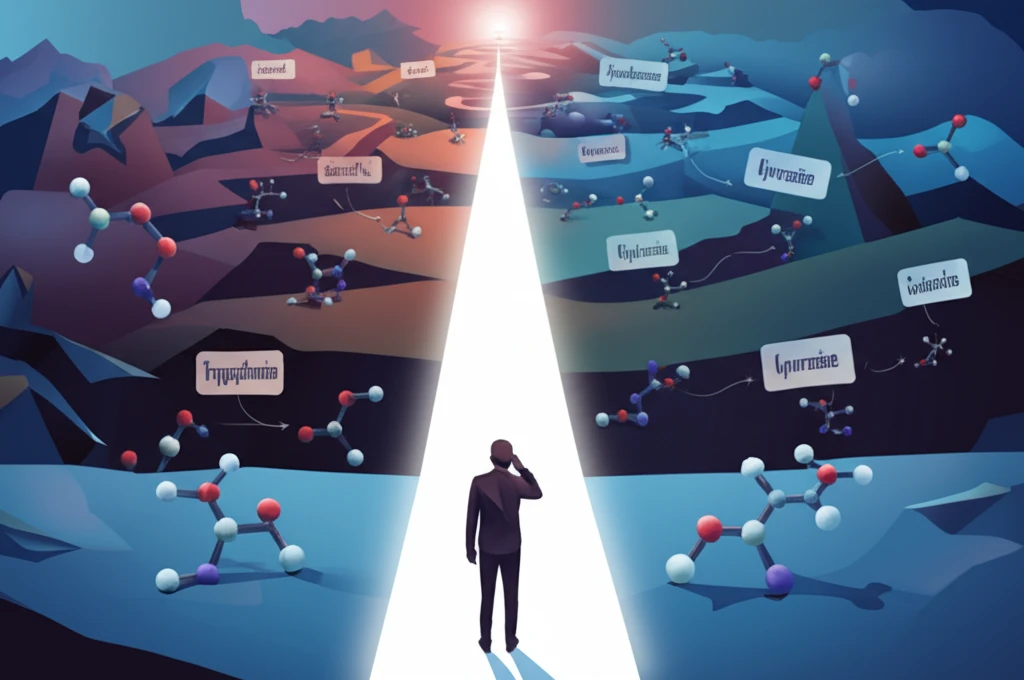
Unlocking the Link Between Tryptophan, Depression, and Hepatitis C Treatment
"A closer look at how interferon-alpha impacts mental health in HCV patients, and what it means for you."
Dealing with Hepatitis C (HCV) is tough enough, but the interferon-alpha (IFN-alpha) treatment, while effective against the virus, often brings an unwelcome guest: depression. It's a common side effect, affecting between 30% and 50% of patients, and can seriously compromise the effectiveness of their treatment. Understanding why this happens is crucial for improving patient care and outcomes.
Emerging research points to disturbances in how our bodies process tryptophan as a key factor in this IFN-alpha-induced depression. Tryptophan is an essential amino acid that plays a vital role in producing serotonin, a neurotransmitter often dubbed the 'happiness hormone.' When the delicate balance of tryptophan metabolism is disrupted, it can have a ripple effect on mental well-being.
This article delves into the findings of a study that explores the intricate relationship between tryptophan, depression, and IFN-alpha treatment in HCV patients. We'll break down the science, explain the key concepts, and discuss what these insights could mean for individuals undergoing treatment and their support networks.
How Does Interferon-Alpha Affect Tryptophan and Mood?

IFN-alpha has been shown to activate an enzyme called indoleamine 2,3-dioxygenase (IDO). IDO is a rate-limiting enzyme, meaning it controls the speed of a particular chemical reaction—in this case, the breakdown of tryptophan along the kynurenine pathway. When IDO is activated, more tryptophan is diverted down this pathway, leaving less available for serotonin production.
- IFN-alpha treatment activates IDO.
- IDO redirects tryptophan metabolism towards kynurenine production.
- Less tryptophan is available for serotonin synthesis.
- Serotonin deficiency may contribute to depression.
What Does This Mean for You?
If you or someone you know is undergoing IFN-alpha treatment for Hepatitis C, it's essential to be aware of the potential impact on mental health. While this study sheds light on the complex interplay between tryptophan metabolism and depression, it also underscores the importance of proactive mental health support. Open communication with healthcare providers, monitoring for mood changes, and exploring strategies to support serotonin production—such as light therapy, exercise, and a balanced diet—can make a significant difference in navigating the challenges of HCV treatment. Remember, you are not alone, and help is available.
